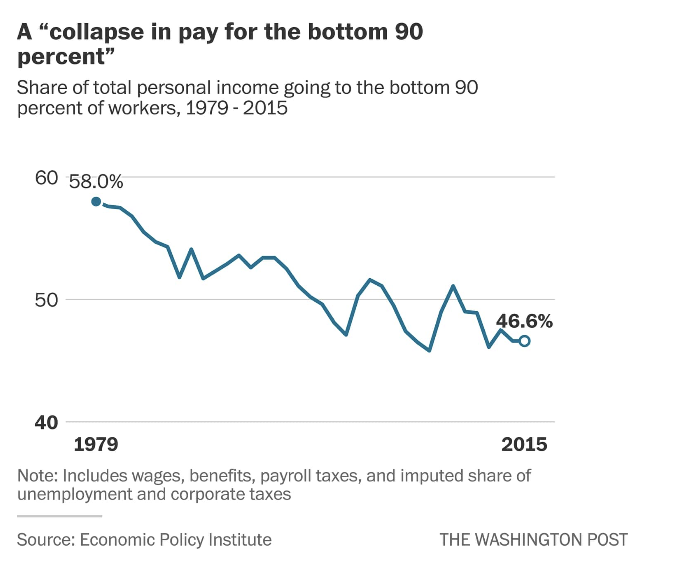Political decisions by elected officials are largely responsible for a “collapse in pay for the bottom 90 percent” of the labor market since 1979, according to a new analysis of wage stagnation by the Economic Policy Institute, a left-leaning think tank.
While many economists pin much of the blame for wage stagnation on impersonal market forces, such as free trade and technological change, EPI’s Josh Bivens and Heidi Shierholz contend that specific policy decisions — including efforts to weaken unions, the decay of the minimum wage and monetary policy that prioritizes low inflation over full employment — are responsible for tilting the balance of power away from workers and toward their employers.
By their calculations, that shift in power cost the bottom 90 percent of wage earners $1.53 trillion in income in 2015 alone, or $10,800 for every American household.




